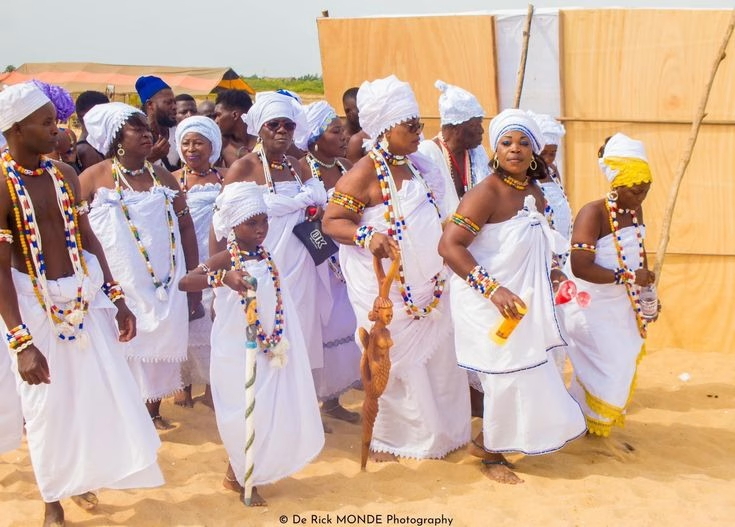Have you ever wondered how love and romance are celebrated in different cultures? In the heart of South Africa, the Xhosa people have preserved a rich tapestry of traditions that make their approach to love and marriage truly unique. Xhosa love rituals are not just ceremonies; they are a profound expression of cultural identity, family values, and spiritual beliefs. In this post, we’ll take you on a journey through the intricate practices that define Xhosa courtship and marriage, offering a glimpse into a world where tradition meets romance.
Table of Contents
- The Cultural Significance of Xhosa Love Rituals
- The Role of Family in Xhosa Courtship
- Traditional Attire and Symbolism in Xhosa Love Rituals
- Key Ceremonies and Practices
- Personal Stories: Experiencing Love Rituals
- Why Xhosa Love Rituals Matter Today
- About Me: A Personal Reflection
- Conclusion: Embracing Tradition in Modern Times
- FAQ About Xhosa Love Rituals
The Cultural Significance of Xhosa Love Rituals
The Xhosa people, one of South Africa’s largest cultural groups, have a deep-rooted belief in the power of tradition. Xhosa love rituals are more than just a path to marriage—they are a celebration of heritage, community, and the sacred bond between two families. These rituals, passed down through generations, reflect the Xhosa values of respect, unity, and spiritual connection. From the initial courtship to the final wedding ceremony, every step is steeped in meaning, ensuring that love is honoured in a way that aligns with cultural and ancestral expectations.
The Role of Family in Xhosa Courtship
In Xhosa culture, love is a family affair. Unlike Western traditions where courtship is often a private matter, Xhosa courtship involves the entire family. The process begins with Ukuthwala, a practice where a man expresses his interest in a woman by symbolically “abducting” her, though today it’s more of a mutual agreement. This is followed by negotiations between the families, where the man’s family offers lobola (bride price) to the woman’s family as a sign of respect and commitment. The involvement of elders ensures that the union is blessed and supported by the community, making the bond stronger and more meaningful.
Traditional Attire and Symbolism in Xhosa Love Rituals
One of the most visually striking aspects of Xhosa love rituals is the traditional attire. Both the bride and groom wear garments that are not only beautiful but also rich in symbolism:
- The Bride: She wears a umbhaco (a long, pleated skirt) and a iqhiya (headscarf), often in vibrant colours like red and orange, symbolizing her transition into womanhood and marriage.
- The Groom: He dons a umqhele (headband) and a ibheshu (animal skin apron), representing strength and leadership.
These outfits are more than just clothing; they are a visual representation of the couple’s new roles within the community and their connection to their ancestors.
Key Ceremonies and Practices
Xhosa love rituals are marked by several key ceremonies, each with its own significance:
- Ukuthwala: The symbolic “abduction” of the bride, marking the beginning of the courtship process.
- Lobola Negotiations: A respectful exchange where the groom’s family offers gifts to the bride’s family, symbolizing unity.
- Umabo: The wedding ceremony itself, filled with singing, dancing, and the exchange of vows.
- Ukuyalwa: A post-wedding ritual where the bride is welcomed into her new home and given advice by elder women.
Each ceremony is a testament to the Xhosa belief in the importance of family, community, and spiritual guidance.
Personal Stories: Experiencing Xhosa Love Rituals
The true beauty of Xhosa love rituals comes alive through the stories of those who have experienced them. One couple, Futhi and Sonwabo, shared their wedding day memories: “The moment the gates opened, and our families joined in song and dance, I felt an overwhelming sense of love and community. It wasn’t just about us—it was about honouring our ancestors and our heritage.” Their story, like many others, highlights the emotional depth and cultural pride that these rituals inspire.
Why Xhosa Love Rituals Matter Today
In a rapidly changing world, love rituals remain a vital part of cultural identity. They offer a way to connect with the past while embracing the future, reminding us of the importance of family, respect, and community. These traditions also provide a sense of continuity, ensuring that the values of the Xhosa people are passed down to future generations. Whether you’re of Xhosa descent or simply curious about this beautiful culture, learning about these rituals can deepen your appreciation for the power of tradition.
About Me: Dokita Mukisa A Personal Reflection
As a passionate explorer of cultural traditions, I’ve always been fascinated by the Xhosa people’s rich heritage. My journey into understanding Xhosa love rituals began when I attended a traditional wedding ceremony, where I was captivated by the vibrant attire, rhythmic music, and the palpable sense of community. The experience was transformative—it wasn’t just a wedding; it was a celebration of love, family, and ancestral wisdom. Since then, I’ve dedicated myself to learning more about these beautiful practices and sharing them with others through this blog. My hope is that these stories inspire you to explore the world’s diverse cultures and find beauty in their traditions.
Book Your Xhosa Love Ritual
- Consultation Fee: R450 or $45
- Call/WhatsApp: +27 774 892 957
- Email: dokitamukisa@gmail.com
- Website: sacredtraditionalhealingspells.co.za
Conclusion: Embracing Tradition in Modern Times
Xhosa love rituals are a powerful reminder that love is not just a personal experience—it’s a communal one, woven into the fabric of culture and history. By embracing these traditions, we honour the past while creating a meaningful future. Whether you’re planning your own wedding or simply curious about global customs, Xhosa love rituals offer timeless lessons in love, respect, and unity. Have you ever experienced a cultural wedding ceremony? Share your story in the comments below!
FAQ About Xhosa Love Rituals
What is the purpose of lobola in Xhosa culture?
Lobola is a bride price paid by the groom’s family to the bride’s family as a sign of respect and commitment. It symbolizes the union of two families.
Are Xhosa love rituals still practiced today?
Yes, many Xhosa people continue to practice these rituals, often blending them with modern wedding elements.
What role do ancestors play in Xhosa love rituals?
Ancestors are believed to guide and bless the couple, ensuring the marriage is harmonious and prosperous.
Can non-Xhosa people participate in these rituals?
While the rituals are rooted in Xhosa culture, many families welcome outsiders to participate and learn, provided they show respect for the traditions.


